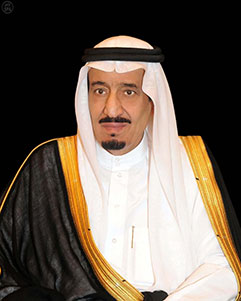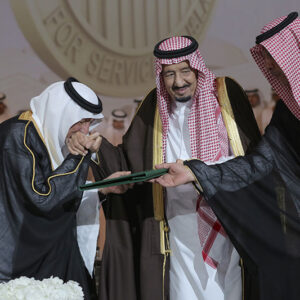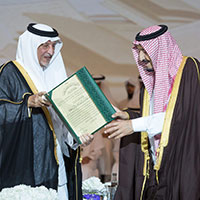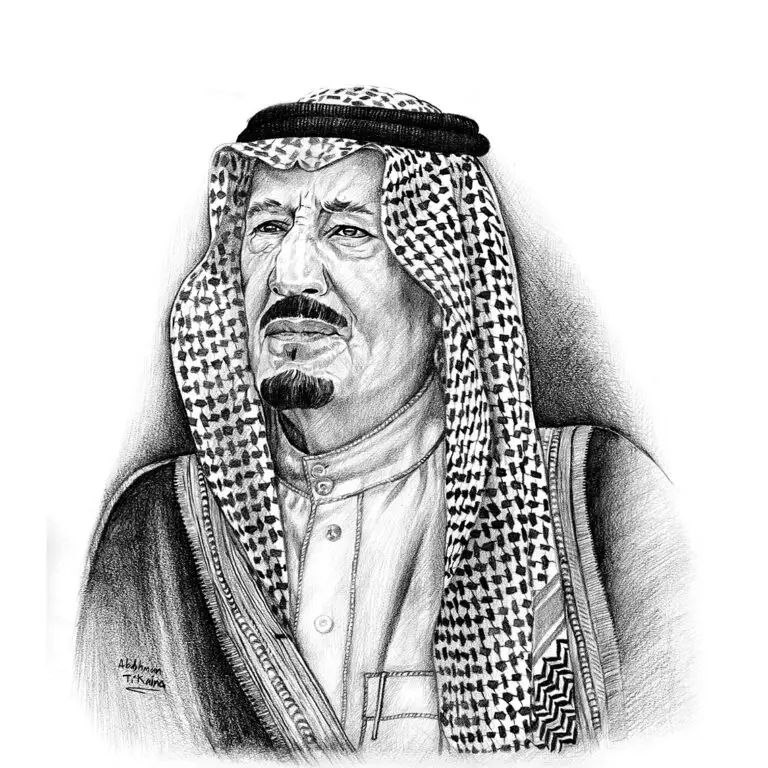
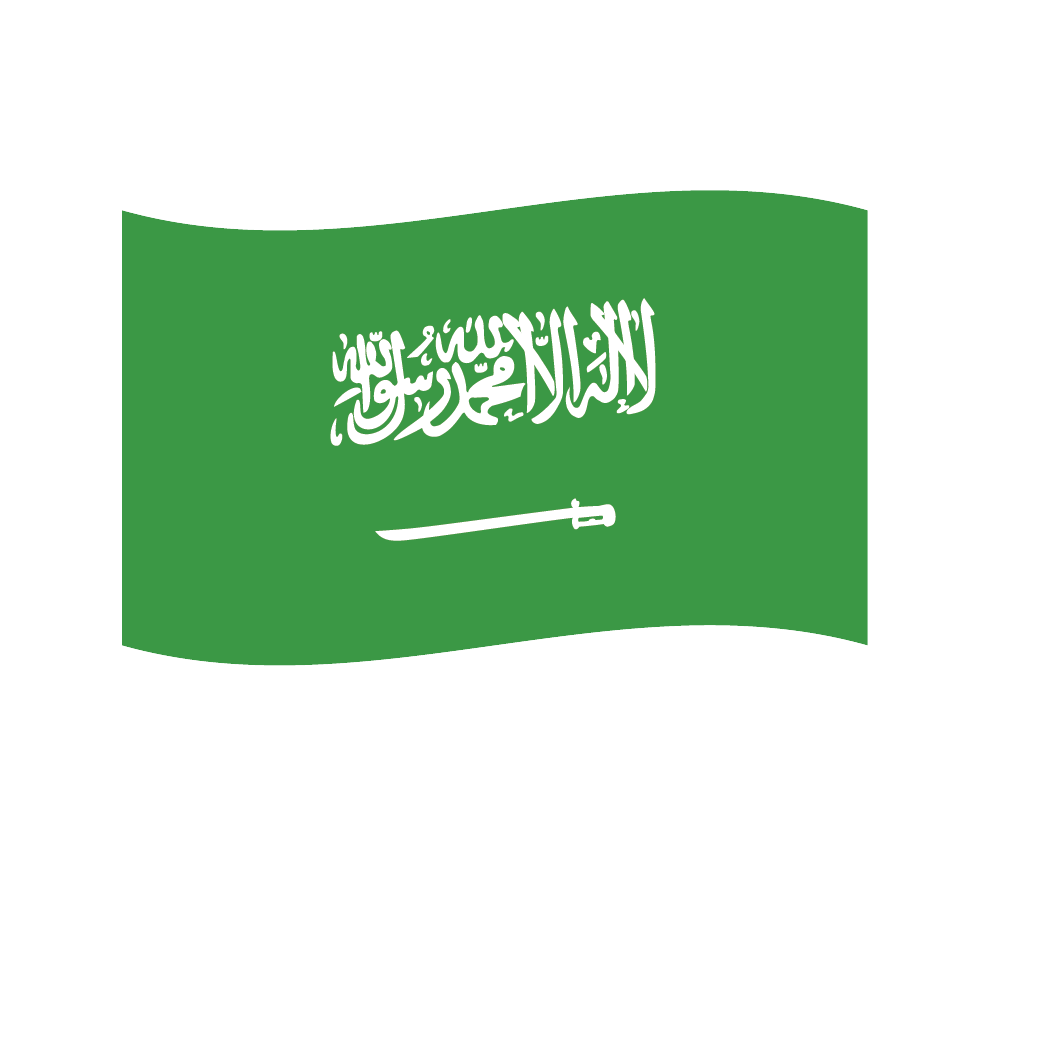
Custodian of the Two Holy Mosques King Salman bin Abdulaziz Al-Saud
King Faisal Prize in Service to Islam 2017 Laureate
Whoever believes that the Holy Quran and the Prophet’s Sunnah are obstacles in the face of progress and development, they neither read nor comprehended both of them

Salman Bin Abdulaziz grew up in Riyadh and received his early tutelage at the hands of many religious scholars and shaikhs. At the same time, he benefited from the close attention and guidance of King Abdulaziz, the founder of Saudi Arabia, who provided to his children a personally monitored education. He received a formal education at Riyadh-based Princes’ School, where he studied religion and modern sciences. He also completed the reading of the holy Qur’an, an achievement celebrated by his school in 1945.
King Salman was appointed in 1954 as a Deputy Governor of Riyadh Region when he was just nineteen years of age. In 1955, a Royal Decree was issued appointing him Governor of Riyadh Region. In 2011, he was decreed as a Minister of Defense; and in 2012, a Royal Decree was issued appointing him a Crown Prince, a Deputy Premier, and a Defense Minister. In 2015, the Custodian of the Two Holy Mosques, King Salman Bin Abdulaziz, was proclaimed King of Saudi Arabia.
King Salman Bin Abdulaziz accords tremendous consideration to humanitarian and cultural issues both inside and outside Saudi Arabia, and sponsored numerous cultural projects. Among the institutions and cultural/social societies, which he chairs, are the Board of Directors of King Abdulaziz Foundation for Research and Archives and King Fahad National Library. He has also chaired the High Commission for Development of Riyadh and the High Executive Committee for the Development of Dir’iya. He is also an Honorary President of the Charitable Society for Memorization of the Holy Quran in Riyadh Region. Besides, King Salman headed several humanitarian societies and commissions whose activities extend beyond Saudi Arabia. These include the Donations Committee for Distressed Inhabitants of Suez in 1956, the Principal Committee for Donations to Algeria in 1956, the Public Donations Committee for Jordanian Martyrs’ Families in 1967, the Public Relief Committee for Pakistani Sufferers during the India-Pakistan war in 1973, the Popular Committee for Supporting the War Effort in Egypt in 1973, and the Popular Committee for Supporting the War Effort in Syria in 1973.
This biography was written in the year the prize was awarded.
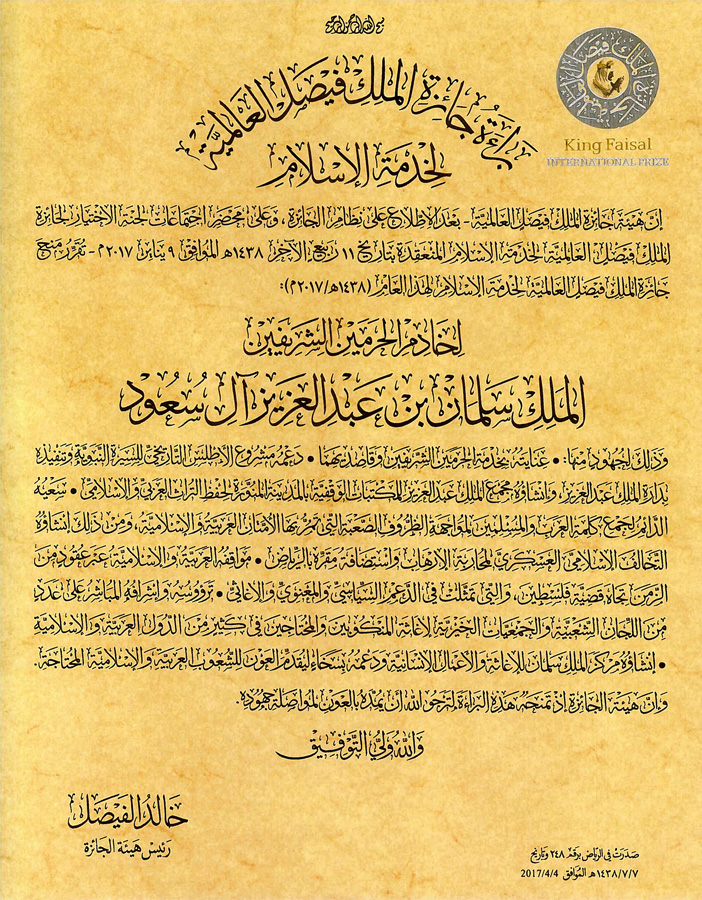
- He established many projects including:
- Expense Fund in 2017.
- Intellectual Conflict Center in 2017.
- Global Center to Combat Extremism in 2017.
- King Salman Complex for printing the Prophet’s Hadiths in 2017.
- Royal Commission of Makkah and the Holy Sites in 2018.
- Dhuyuf Al-Rahman Program in 2019.
- King Salman Grand Mosque at the International Islamic University in Islamabad in 2021.
- He received many awards and recognitions including:
- The Hellenic Republic Order in 2017.
- Royal Family Order of the Crown of Brunei in 2017.
- First Class of the Star of the Republic of Indonesia in 2017.
- Order of the Chrysanthemum in 2017.
- Collar of the Order of Al-Hussein bin Ali in 2017.
- Most Exalted Order of the Crown of the Realm in 2017.
- Collar of the Order of Prince Yaroslav the Wise in 2017.
- Honorary Doctorate in International Relations from Moscow University in 2017.
- Collar of the Order of the Republic of Bangladesh in 2018.
- Honorary Doctorate from the University of Kairouan in 2019.
- Grand Cordon of the Order of the Republic of Tunisia in 2019.
- Abu Bakr First Class Order in 2020.
- Grand Cordon with Collar of the Order of Al-Said in 2021.

